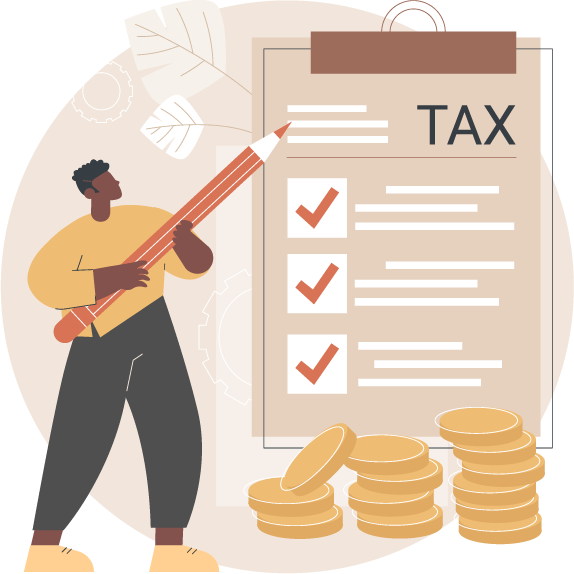Table of Content
Share This Article
- Published: April 30, 2021
- Last Updated: January 15, 2025
- 🔊 Read Article
The IRS (Internal Revenue Service) announced an extension of the tax filing deadline from April 15 to May 17. It was a way to support taxpayers in these tough times due to the pandemic. The extended deadline also gives the IRS some time to get its guidelines in order.
According to the IRS, Tax Filing Extension 2021 refers to individual taxpayers, even the ones who pay self-employment tax. It released official guidance which clarifies what is covered and what not in the extension. The latest announcement sheds light on the following points:
- Contribution to IRAs and health savings accounts
The IRS has extended the date for individuals making 2020 contributions to their individual retirement agreements i.e., IRAs and Roth IRAs, Archer Medical Savings Accounts (Archer MSAs), Health Savings Accounts (HSAs), and Coverdell Education Savings Accounts (Coverdell ESAs). The extension date has been postponed to May 17, 2021, which is also the reporting time of the 10% additional tax paid on amounts included in gross income from IRAs’ 2020 distributions or official retirement plans.
- AFSP
The IRS has extended the deadline for tax preparers who are interested in participating in the annual filing season program (AFSP) for the year 2021. They now have until May 17, 2021, to submit their entries with the Internal Revenue Service.
The details of this extension as provided in the Notice 2021-21 issued by the IRS on their website. You can check the Annual Filing Season Program on their Tax Pros page.
- 2017 unclaimed refunds
The deadline to claim Federal income tax returns for the tax year 2017 has also been extended from April 15 to May 17. The law allows a time period of 3 years to claim a refund. If taxpayers fail to file a return within the time period, the money becomes a part of the U.S. Treasury. The IRS claims that the law requires taxpayers to properly address and ensure that the tax return is filed by the extended date.
The IRS also included that the “foreign trusts and estates with federal income tax filing or payment obligations, who file Form 1040-NR, now have until May 17, 2021.”
- Forms 5498
The deadline for the Forms in Form 5498 is postponed to June 30, 2021. The deadline has been extended for this long because the filers of the Form are Affected Taxpayers (individual taxpayers with claims for credit or refund for the tax year 2017). Any postponed filing will result in penalties and will begin to accrue on July 1, 2021.
What’s not covered
Following were not covered in the notice:
- Corporation and Partnership Income Tax Returns
- Trust Income Tax Returns
- Estimated Tax Payments For 2021
- Gift Tax Returns
- Estate Tax Returns
Taxpayers do not need to file a separate application to get an extension under the latest notice. The period between April 15, 2021, and May 17, 2021, will be disregarded by the IRS when calculating any interest, penalty, or failure to file a federal income tax return extended in the notice. The IRS requests taxpayers to file a refund as soon as possible. Most tax refunds related to the e-filed returns are issued within 21 days.
Individual taxpayers who require more time to file after the deadline can request a tax-filing extension until October 15 by filling form 4868 with the help of their accounting service provider, tax software, or through the Free File link on the IRS website.
The IRS has already extended the deadline for states that come under federal disaster areas, including Texas, Oklahoma, and Louisiana. These States can now file individual and business tax returns and make tax payments until June 15, 2021.
The estimated tax payments due on April 15 2021 will not get any benefit from this relief. These payments are still due on the same date i.e., April 15. As taxpayers earn or receive income throughout the year, they have to pay taxes either through withholding or estimated tax payments.
Usually, estimated tax payments are done quarterly to the IRS by taxpayers whose salary isn’t subject to Income Tax. It includes self-employment income, dividends, interest alimony, or rental money. Most companies have this policy to withhold the taxes of their employees and submit it to the IRS through their paycheques.
Which states have conformed to the extension?
Starting from March 30, 2021, 35 states have postponed the individual income tax filing deadline to adhere to the May 17 deadline extension issued by IRS. State filing in payment deadlines do not always subject to federal filing deadlines and therefore, can vary. Taxpayers can check more about the state-wise guidance and instructions on the IRS website. They can also consult with an accounting service in the respective state to get more details.

Get customized plan that supports your growth

Thousands of business owners trust Whiz to manage their account
Let us take care of your books and make this financial year a good one.
This website uses cookies to improve your experience. You can accept all or reject non-essential cookies.








